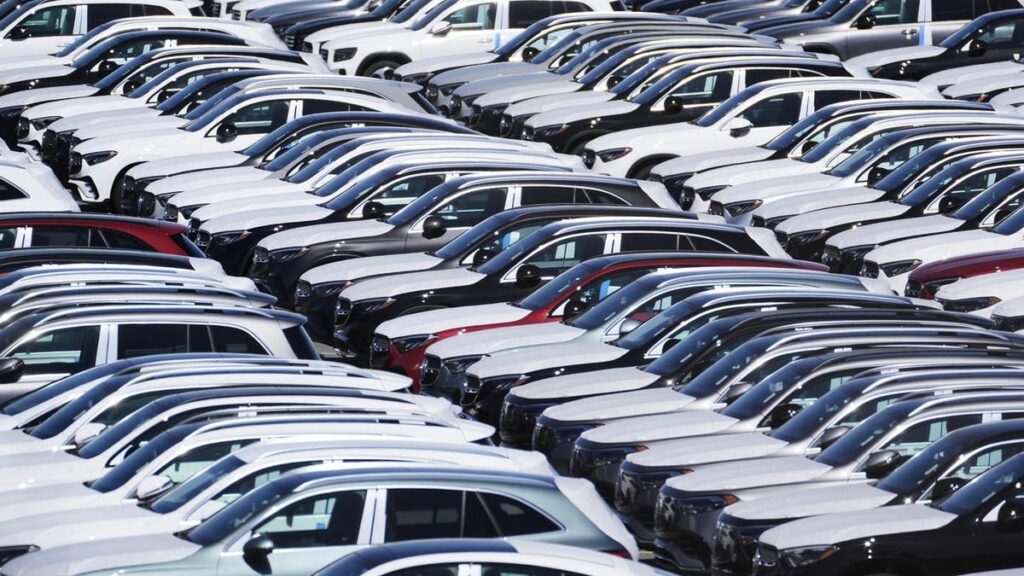
UPDATE: The European Union is urgently pushing to reduce US car tariffs in a newly outlined trade deal, aiming for retroactive application that could benefit car manufacturers almost immediately. EU trade chief Maros Sefcovic confirmed that a significant reduction from the current 27.5 percent tariff on cars and parts could start as soon as August 1, contingent upon the EU introducing necessary legislation.
This announcement comes as the EU and US finalize the details of their framework trade deal, initially agreed upon in July. The joint statement outlines that a 15 percent tariff will apply to most EU imports, while the EU commits to eliminating tariffs on US industrial goods and offering preferential access for a wide range of US seafood and agricultural products.
Key improvements are on the horizon for European car makers, who have been burdened by hefty tariffs. An anonymous senior US administration official stated that car manufacturers could see relief within “hopefully weeks.” The official emphasized the urgency of moving quickly, stating, “As soon as they’re able to introduce that legislation… we will be in a position to provide that relief.”
The trade framework was first announced on July 27 at a meeting between US President Donald Trump and European Commission President Ursula von der Leyen at Trump’s golf course in Scotland. Both leaders have hailed this deal as historically significant, especially amidst ongoing negotiations aimed at addressing the conflict in Ukraine.
The joint statement signifies both sides’ commitment to accountability in implementing the agreed terms, with provisions to potentially expand the deal to include more sectors in the future. Notably, the US will apply only existing Most Favored Nation tariffs below 15 percent starting September 1 on EU aircraft and parts, as well as some pharmaceuticals and natural resources, which include cork but not wine or spirits—provisions the EU continues to negotiate.
Moreover, the EU intends to procure $750 billion in US liquefied natural gas, oil, and nuclear energy products, in addition to $40 billion for US-made artificial intelligence chips. Both parties have also committed to addressing “unjustified digital trade barriers” and the EU has pledged not to adopt network usage fees.
This urgent push for lower tariffs is a crucial move that could reshape the landscape of transatlantic trade. The implications for consumers and manufacturers could be profound, with potential cost savings for European car buyers and enhanced competitiveness for EU automakers in the US market. As details unfold, the global trade community will be closely monitoring these developments to gauge their impact on international commerce.
Stay tuned for more updates as this story develops further.







